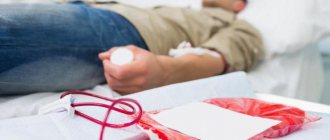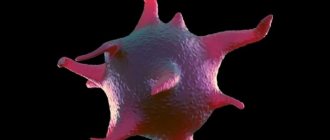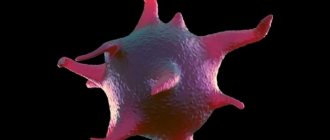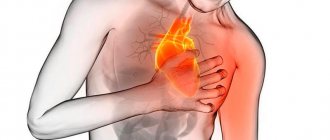Health
Good health at the time of blood donation.
You should not donate blood if you have a cold, flu, sore throat, herpes, upset stomach or any other infection.
You cannot donate blood for 6 months after getting a tattoo or piercing. If the piercing was performed by a registered healthcare professional and there is no inflammation, you can donate blood after 12 hours.
After visiting the dentist for a minor procedure, you can donate blood within 24 hours; After significant interventions, you must wait a month.
You cannot donate blood if your hemoglobin levels are below the minimum level established for blood donation:
- A test is performed at the blood donation site. In many countries, minimum hemoglobin levels are 12.0 g/dL for women and 13.0 g/dL for men.
Who are the donors?
These are people who voluntarily donate their blood or its components for transfusion to other people.
There is also the concept of autodonation - components are taken from the person himself before a course of treatment or planned surgery.
After the intervention, the body is weakened, foreign cells are a great stress for it. Therefore, doctors insist on transfusion of the patient's own donor material in those cases where this is possible.
Donors can be one-time or permanent . The first donate blood once - help is needed for a relative, friend, or as assistance to victims of a large-scale accident. Regular donation involves several donations per year.
On average, the human body contains from 4.5 to 5.5 liters of blood. Its volume increases and decreases with fluctuations in body weight. You can take no more than 12% for one procedure. Typically a serving is 450 ml.
Benefits of donation:
- Regular free examinations are mandatory for donors,
- Social privileges and benefits,
- Opportunity to receive emergency medical care,
- Benefit for health. The blood is regularly renewed, while the body burns calories, blood vessels are maintained in tone,
- The opportunity to help other people and save someone's life.
But there are also restrictions in the life of a donor: they need to lead a healthy lifestyle, give up bad habits, eat properly and nutritiously, exercise, carefully monitor their health, and not take medications unnecessarily.
Trips
Travel to areas where mosquito-borne infections such as malaria, dengue, and Zika virus infections are common may require temporary abstinence.
Many countries are temporarily preventing people who have traveled to or resided in specific countries or areas during certain periods of cumulative exposure from donating blood as a measure to reduce the risk of transmission of variant Creutzfeldt-Jakob disease through blood transfusions.
Contraindications to donation
SURVEY
Before donating blood, the donor undergoes a free medical examination, which includes an examination by a transfusiologist and preliminary laboratory testing. Body temperature measured before blood donation should be no higher than 37°C; permissible systolic pressure - from 90 to 149 mmHg, diastolic - from 60 to 89 mmHg; permissible heart rate is 55-95 beats per minute.
If you have any medical conditions not included in the list below, or are taking any medications or dietary supplements, tell your doctor. An examination and conversation between a doctor and a donor are mandatory procedures before donating blood or its components. Do not hide your ailments from the doctor, answer his questions and the questionnaire honestly, and then donation will be safe both for you and for those who need a transfusion.
CONSTANT CONTRAINDICATIONS
(withdrawal from donation regardless of the duration of the disease and treatment results)
1. Infectious and parasitic diseases:
- Disease caused by human immunodeficiency virus (HIV infection), hepatitis B and C viruses
- Syphilis, congenital or acquired
- Tuberculosis (all forms), Brucellosis, Typhus, Tularemia, Leprosy (Hansen's disease), African trypanosomiasis, Chagas disease, Leishmaniasis, Toxoplasmosis, Babesiosis, Chronic Q fever, Echinococcosis, Filariasis, Dracunculosis
- Repeated positive test result for markers of disease caused by human immunodeficiency virus (HIV infection)
- Repeated positive test result for markers of viral hepatitis B and C
- Repeated positive test result for markers of the causative agent of syphilis
2. Malignant neoplasms
3. Diseases of the blood, hematopoietic organs and certain disorders involving the immune mechanism
4. Diseases of the central nervous system (organic disorders)
5. Complete absence of hearing and (or) speech, and (or) vision
6. Mental disorders and behavioral disorders in a state of exacerbation and (or) posing a danger to the patient and others
7. Mental and behavioral disorders caused by the use of psychoactive substances
8. Diseases of the circulatory system:
hypertensive (hypertensive) disease stage II-III, coronary heart disease, obliterating endarteritis, nonspecific aortoarteritis, phlebitis and thrombophlebitis, endocarditis, myocarditis, heart disease (congenital, acquired)
9. Respiratory diseases:
bronchial asthma, bronchiectasis, emphysema
10. Diseases of the digestive system:
Achilles gastritis, chronic liver diseases, including unspecified, toxic liver lesions, calculous cholecystitis with repeated attacks and symptoms of cholangitis, cirrhosis of the liver
11. Diseases of the genitourinary system in the stage of decompensation:
diffuse and focal kidney damage, urolithiasis
12. Connective tissue diseases, as well as acute and (or) chronic osteomyelitis
13. Radiation sickness
14. Diseases of the endocrine system in the stage of decompensation
15. Diseases of the eye and its adnexa:
Uveitis, iritis, iridocyclitis, chorioretinal inflammation, trachoma, myopia 6 diopters or more)
16. Diseases of the skin and subcutaneous tissue:
Psoriasis, erythema, eczema, pyoderma, sycosis, pemphigus (pemphigus), dermatophytosis, furunculosis
17. Surgical interventions (resection, amputation, removal of an organ (stomach, kidney, spleen, ovaries, uterus, etc.)), transplantation of organs and tissues resulting in permanent disability (disability group I and II), xenotransplantation of organs
18. Persistent loss of ability to work (disability groups I and II)
19. Female donor for donation of 2 units of red blood cells or suspension obtained by apheresis
20. Persons with repeated nonspecific reactions to markers of human immunodeficiency viruses, hepatitis B and C and the causative agent of syphilis
21. Persons with repeated detected alloimmune antibodies to erythrocyte antigens (with the exception of plasma donors for the production of drugs)
22. Persons with repeated detection of anti-A1 extraagglutinins (except for plasma donors for the production of drugs)
TEMPORARY CONTRAINDICATIONS
| NAMES | DATE WITHDRAWAL FROM DONATION |
| 1. Body weight less than 50 kg | Until reaching a body weight of 50 kg |
| 2. Age under 20 years (for donation of 2 units of red blood cells or suspension obtained by apheresis) | Before reaching 20 years of age |
| 3. Body weight less than 70 kg (for donation of 2 units of red blood cells or suspension obtained by apheresis) | Until a body weight reaches 70 kg |
| 4. Hemoglobin less than 140 g/l (for donation of 2 units of red blood cells or suspension obtained by apheresis) | Until the hemoglobin level reaches 140 g/l |
| 5. Body temperature above 37 °C | Until body temperature normalizes (37 °C and below) |
| 6. Pulse - less than 55 beats per minute and more than 95 beats per minute | Until the pulse normalizes from 55 to 95 beats per minute |
| 7. Blood pressure: systolic less than 90 mm Hg. Art. and more than 149 mm Hg. Art.; diastolic - less than 60 mm Hg. Art. and more than 89 mm Hg. Art. | Before normalization of systolic pressure: 90 - 149 mm Hg. Art.; diastolic pressure: 60 - 89 mm Hg. Art. |
| 8. Body mass index | Less than 18.5 and more than 40 |
| 9. Discrepancy between the results of the study of blood group AB0, Rhesus, antigens C, c, E, e, K with the results of the study during the previous donation | Before performing a confirmatory study |
| 10. Transfusion of blood and (or) its components | 120 calendar days from the date of transfusion |
| 11. Primary detection of alloimmune antibodies to erythrocyte antigens in a donor blood sample | Before confirming the absence of alloimmune antibodies to erythrocyte antigens in the donor’s blood sample, no earlier than 180 calendar days after the initial detection |
| 12. Surgical interventions, including artificial termination of pregnancy | 120 calendar days from the date of surgery |
| 13. Medical and cosmetic procedures involving skin disorders (tattoos, piercings, acupuncture, etc.) | 120 calendar days from the end of the procedures |
| 14. Contact with carriers and patients with viral hepatitis B or C, syphilis, disease caused by the human immunodeficiency virus (HIV infection) | 120 calendar days after the end of last contact |
| 15. Questionable result for markers of viral hepatitis B and (or) viral hepatitis C, and (or) disease caused by the human immunodeficiency virus (HIV infection), and (or) the causative agent of syphilis | Until confirmation of the absence of markers of viral hepatitis B and (or) viral hepatitis C, and (or) disease caused by the human immunodeficiency virus (HIV infection), and (or) the causative agent of syphilis, but not earlier than 120 calendar days after receipt questionable laboratory test result |
| 16. Past infectious diseases: | |
| - history of malaria in the absence of symptoms and in the presence of negative immunological test results | 3 years |
| — typhoid fever after recovery and a full clinical examination in the absence of pronounced functional disorders | 1 year |
| - sore throat, flu, acute respiratory viral infection | 30 calendar days after recovery |
| 17. Previous infectious and parasitic diseases not listed in the list of permanent and temporary contraindications | 120 calendar days after recovery |
| 18. Acute or chronic inflammatory processes in the acute stage, regardless of location | 30 calendar days after relief of the acute period |
| 19. Exacerbation of stomach and (or) duodenal ulcers | 1 year from the moment of relief of the acute period |
| 20. Kidney diseases not listed in paragraph 12 of the list of permanent contraindications | 1 year from the moment of relief of the acute period |
| 21. Allergic diseases in the acute stage | 60 calendar days after relief of the acute period |
| 22. Period of pregnancy, lactation | 1 year after birth, 90 calendar days after the end of lactation |
| 23. Vaccination: | |
| — vaccination with inactivated vaccines (including against tetanus, diphtheria, whooping cough, paratyphoid, cholera, influenza), toxoids | 10 calendar days after vaccination |
| - vaccination with live vaccines (including against brucellosis, plague, tularemia, tuberculosis, smallpox, rubella, polio orally), administration of anti-tetanus serum (in the absence of pronounced inflammatory phenomena at the injection site) | 30 calendar days after vaccination |
| — vaccination with recombinant vaccines (including against viral hepatitis B, coronavirus infection) | 30 calendar days after vaccination |
| - administration of immunoglobulin against hepatitis B | 120 calendar days after vaccination |
| - administration of immunoglobulin against tick-borne encephalitis | 120 calendar days after vaccination |
| - vaccination against rabies | 1 year after vaccination |
| 24. Taking medications: | |
| - antibiotics | 14 calendar days after the end of admission |
| - analgesics, anticoagulants, antiplatelet agents (including salicylates) | 3 calendar days after the end of the appointment |
| 25. Drinking alcohol | 48 hours |
Donor traffic light
| 0(I) | A(II) | B(III) | AB(IV) | ||||
| Rh- | Rh+ | Rh- | Rh+ | Rh- | Rh+ | Rh- | Rh+ |
| this means that there is an increased need for blood of this group and Rh factor, we ask donors to come and donate blood. |
| this means that if the blood of this group and the Rh factor are not enough, you need to come and donate blood. |
| this means that there is sufficient blood of this group and Rh factor and a visit to the Blood Service can be postponed. |
Behavior
You cannot donate blood:
- after "risky" forms of sexual activity in the last 12 months
- The following persons are not allowed to donate blood under any circumstances:
- persons who have ever tested positive for HIV infection
- persons who have ever used injecting psychoactive substances.
National blood donor selection guidelines include additional behavioral eligibility criteria. These criteria may vary from country to country.
Who should not be a donor?
The list of contraindications is quite long. People with serious blood diseases, oncology, or infections cannot donate blood at all. In addition, there are situations when a person has a temporary exemption from donation (for a period of one month to three years) due to past illnesses and other interventions.
In some cases, contraindications may be conditional. For example, if we are talking about urgently saving the life of a close relative with whom there is full compatibility - but the potential donor has a temporary allotment. If there is no alternative, the doctor can weigh the pros and cons and make an exception if the potential risk is not high.
Height and weight
Low or very high stature is not a contraindication, unless it is caused by a disease for which a person regularly takes hormonal medications.
Weight less than 50 kg is a contraindication. Such people have a harder time withstanding blood loss, even minor ones. Excess weight also imposes restrictions: it is usually associated with an unhealthy lifestyle or hormonal imbalance, which affects the condition and composition of blood cells.
Pregnancy and breastfeeding
After pregnancy, the period of abstinence from blood donation should be as many months as the pregnancy lasted.
It is not recommended to donate blood while breastfeeding. After birth, the period of abstinence from blood donation is at least 9 months (according to the length of pregnancy) and lasts 3 months, during which the baby is largely weaned (that is, receives most of its nutrition in the form of solid foods or formula) .
What to eat before donating blood
For two days, do not drink alcoholic beverages; the day before, exclude fatty, fried, spicy, smoked, dairy products, eggs, butter from your diet; it is recommended - sweet tea, jam, bread, crackers, dried cereals, boiled cereals, pasta in water without oil, juices , fruit drinks, compotes, mineral water, vegetables, fruits (except bananas).
Compliance with these requirements is especially important if you are donating platelets or plasma. Neglecting them will not allow high-quality separation of your blood (separation of the necessary components) and will make donation impossible.










